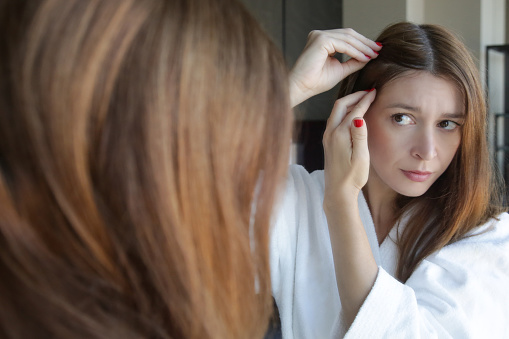

7 FOODS TO PREVENT HAIR LOSS
Hair is a unique character of mammals and has several functions, from protection of the skin to sexual and social communication. Hair is made of a tough protein called keratin. Hairs in humans follow a growth cycle and hence can be managed by adequate care in different aspects including nutrition.
Hair is continuously growing and being replaced and the follicles are constantly creating new hairs from nutrients in the body.
The foods people eat affect how their hair grows and its quality. Certain proteins, fats, vitamins, and minerals are especially important for strong, healthy hair. While hair follicles are among the most metabolically active in the body, and hair growth may be impacted by calorie and protein malnutrition as well as micronutrient deficiency.
Eating a varied, nutritious diet can also boost nail and skin health. The changes will be most noticeable in people who previously had vitamin or nutrient deficiencies. Even so, it may take a while to see the positive results, in terms of hair growth.
The American Academy of Dermatology estimates that people lose 50–100 hairs each day. Shortly afterward, new hairs regrow from the same follicles. Head hair usually grows around 6 inches per year.
The following sections look at key nutrients for hair growth and which foods contain them.
Protein
Your hair is composed primarily of protein (keratin), so including adequate amounts in your diet is vital to hair growth. Eating a portion of high-protein food with breakfast and lunch is recommended.
Foods include fish, chicken, lean meat, eggs, beans, quinoa, tofu, legumes, nuts, dairy products.
Iron
Iron deficiency (ID) is the world’s most common nutritional deficiency and is a well-known cause of hair loss. When you don’t have enough iron, your body can’t produce the hemoglobin in your blood. Hemoglobin carries oxygen for the growth and repair of cells in your body, including the cells that stimulate hair growth.
Foods include lentils, beans, and spinach, chicken, beef, tuna, salmon.
Vitamin C
Iron can only be absorbed effectively if you are ingesting it alongside vitamin C.
Foods include amla, lemons, broccoli, cauliflower, kiwi, orange juice, papaya, red, green or yellow pepper, sweet potato, strawberries, and tomatoes.
Zinc
It helps our bodies to process carbohydrates, fats, and proteins – the building blocks of hair. It is an important element in protein synthesis. Deficiency of zinc can cause hair loss, and also anemia which can further exacerbate hair shedding. If the case of zinc supplementation is considered; one should also keep in mind about zinc toxicity.
Foods include milk, cheese, wheat germs, eggs, seafood, dried vegetables, etc.
Copper
Copper helps protein peptides which help the healing of any wounds in the scalp, thus promoting the growth of hair by enlarging the hair follicles and reducing the resting phase of hair growth.
Foods include sesame seeds (til), sunflower seeds, whole masoor (lentil), kulith (horse gram)
Vitamin A
Vitamin A is needed by the body to make sebum. Sebum is an oily substance created by our hairs sebaceous glands and provides a natural conditioner for a healthy scalp. Without sebum, we may experience an itchy scalp and dry hair.
While deficiency has not been linked to hair loss, high levels of vitamin A have. Hypervitaminosis A may result from over-supplementation and has a strong known link to hair loss with other effects such as skin, vision, and bone changes.
Foods include animal products and orange/yellow colored vegetables which are high in beta-carotene (which makes vitamin A) such as carrots, pumpkins, and sweet potatoes.
Biotin
Biotin is a water-soluble B vitamin. Too little biotin can cause brittle hair and may lead to hair loss.
Foods include whole grains, liver, egg yolk, soy flour, and yeast.
Although you can’t change factors like age and genetics, diet is one thing you have control over. In fact, consuming a diet lacking the right nutrients can lead to hair loss.
On the other hand, eating a balanced diet with the right nutrients can help promote hair growth, especially if you’re experiencing hair loss due to poor nutrition. An overall balanced diet is necessary for a healthy scalp and healthy hair.
Divya
M. Sc. Gold Medalist

Leave a Reply